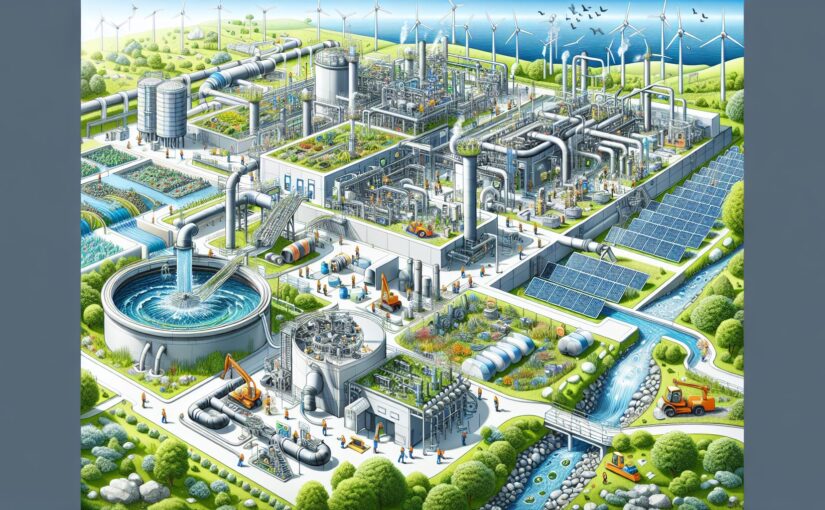A crucial matter in today’s society, renewable energy, continues to evolve, employing new strategies and technologies to streamline the conversion process. One surprising area where potential has been identified relates to treatment of our wastewater. This isn’t just waste-water treatment for cleanliness, but also for sourcing renewable energy.
Wastewater treatment facilities traditionally have been massive consumers of energy, making the paradoxical approach of generating energy from wastewater a forward-thinking one.
Enter Microbial Fuel Cells (MFCs)
Microbial fuel cells (MFCs) are at the forefront of this novel technological advancement. In essence, they convert chemical energy, available in organic matter, into electricity via metabolic processes of microorganisms. This translates to wastewater serving as an organic matter source, which can be transformed into renewable electricity by MFCs.
The Process
The process isn’t as complicated as it might sound. Microorganisms present in wastewater consume organic matter and produce electrons. These electrons are transferred to the anode (the negative electrode). An external wire carries these electrons to the cathode (the positive electrode), thereby creating an electrical current.
Succinctly, MFC technology is more than just waste treatment. It’s waste treatment that produces clean water and renewable power simultaneously. Additional bonuses include reducing energy costs and greenhouse gas emissions associated with conventional wastewater treatment techniques.
Advancements and Challenges
There’s been significant progress in MFC technology in recent years, owing to improved design, understanding of microbial communities, and the advent of improved electrode materials.
However, challenges subsist. For broad implementation, the technology needs to be cost-effective and scalable. Additionally, the efficiency of power generation should be upgraded.
The Future is Bright
Even with challenges, the future of renewable energy from wastewater is promising. The concept of closing the loop – transforming waste into a resource – is not just feasible but also pioneering for fostering sustainable societies.
As we explore and fine-tune options like MFCs, we get closer to realizing a notable source of renewable power, right under our noses, in our community wastewater facilities!
References
- “Microbial fuel cells: From fundamentals to applications. A review”[^1^]
- “Energy recovery from wastewater treatment plants through microbial fuel cells: opportunities and challenges”[^2^]
- “The state of the art of the research on wastewater MFCs: A bibliometric and scientometric analysis”[^3^]
[^1^]: Microbial Fuel Cells: From Fundamentals to Applications. A Review
[^2^]: Energy recovery from wastewater treatment plants through microbial fuel cells: opportunities and challenges
[^3^]: The state of the art of the research on wastewater MFCs: A bibliometric and scientometric analysis
